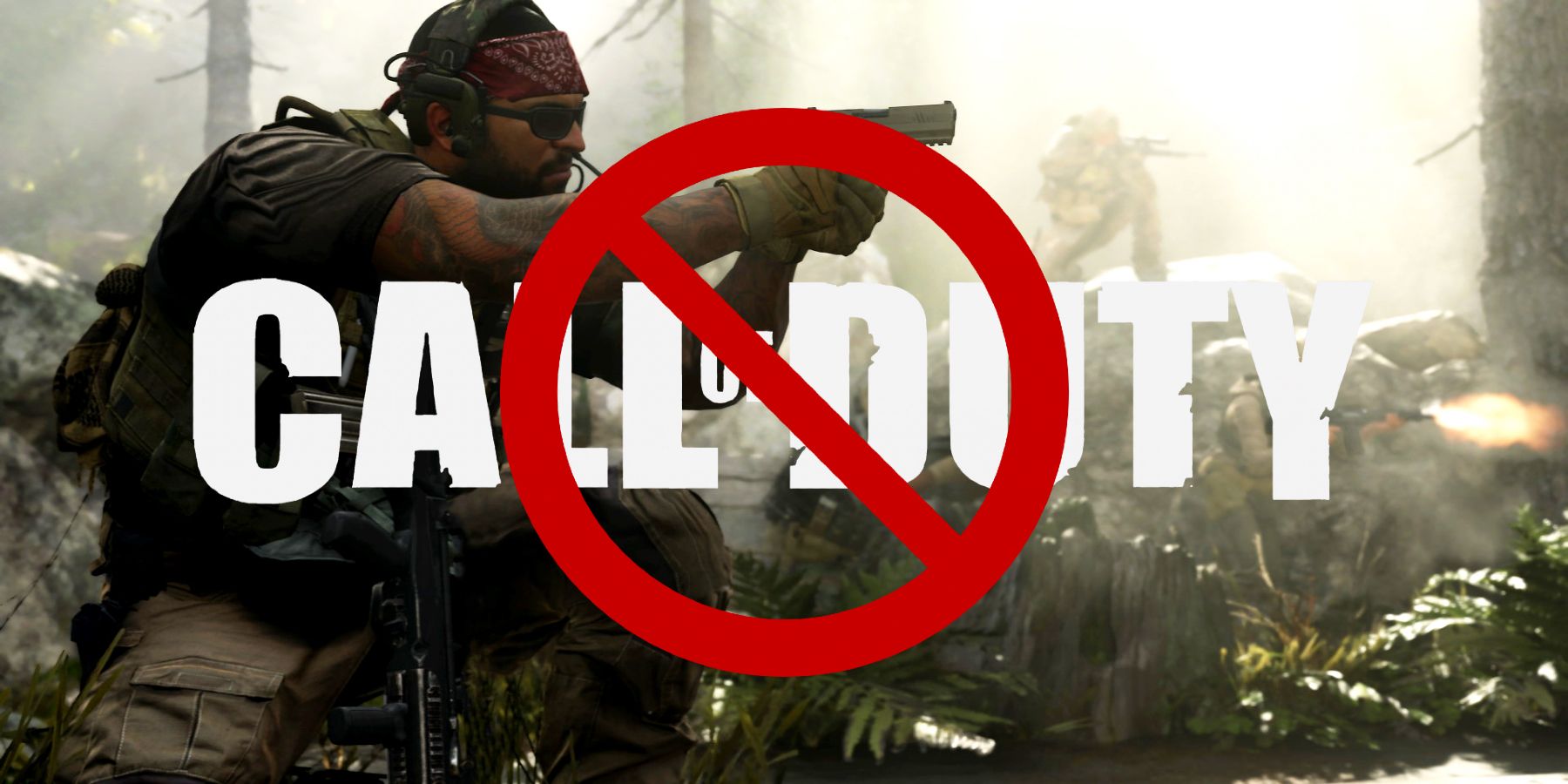
Editor’s Note: A lawsuit has been filed against Activision Blizzard by the California Department of Fair Employment and Housing, which alleges the company has engaged in abuse, discrimination, and retaliation against its female employees. Activision Blizzard has denied the allegations. The full details of the Activision Blizzard lawsuit (content warning: rape, suicide, abuse, harassment) are being updated as new information becomes available.
The Call of Duty franchise has been an industry staple and pillar of the first-person shooter genre since the first game came out in 2003. The series is successful and releases a new installment nearly every year. Recently, Call of Duty has even adapted to the industry shift toward live-service formats with its popular battle royale, Warzone. Despite its seeming inability to fail, Call of Duty has had a handful of canceled games.
The release of Call of Duty: Vanguard will mark the series' 18th mainline installment, not counting Warzone. This tally doesn't take into account console exclusive games like Finest Hour or Big Red One, any of the handheld titles, or Call of Duty: Mobile. The latter has been immensely successful in its own right. The massive brand that is Call of Duty requires many development studios to be at work on it year round, and in the past, some studios have pitched or prototyped prospective Call of Duty games that never came to fruition.
Canceled Call of Duty games that are known to the public are all rather old, but there have likely been numerous other pitches both newer and older than those below. For the most part, the canceled games that are known about seem to make an attempt at drastically changing the signature Call of Duty gameplay. Many would have likely been considered Call of Duty spin-offs, but others seemingly tried to take the series into a different genre entirely. Some seem like plausible releases that Call of Duty would explore, but one in particular seems to have been canceled for obvious reasons.
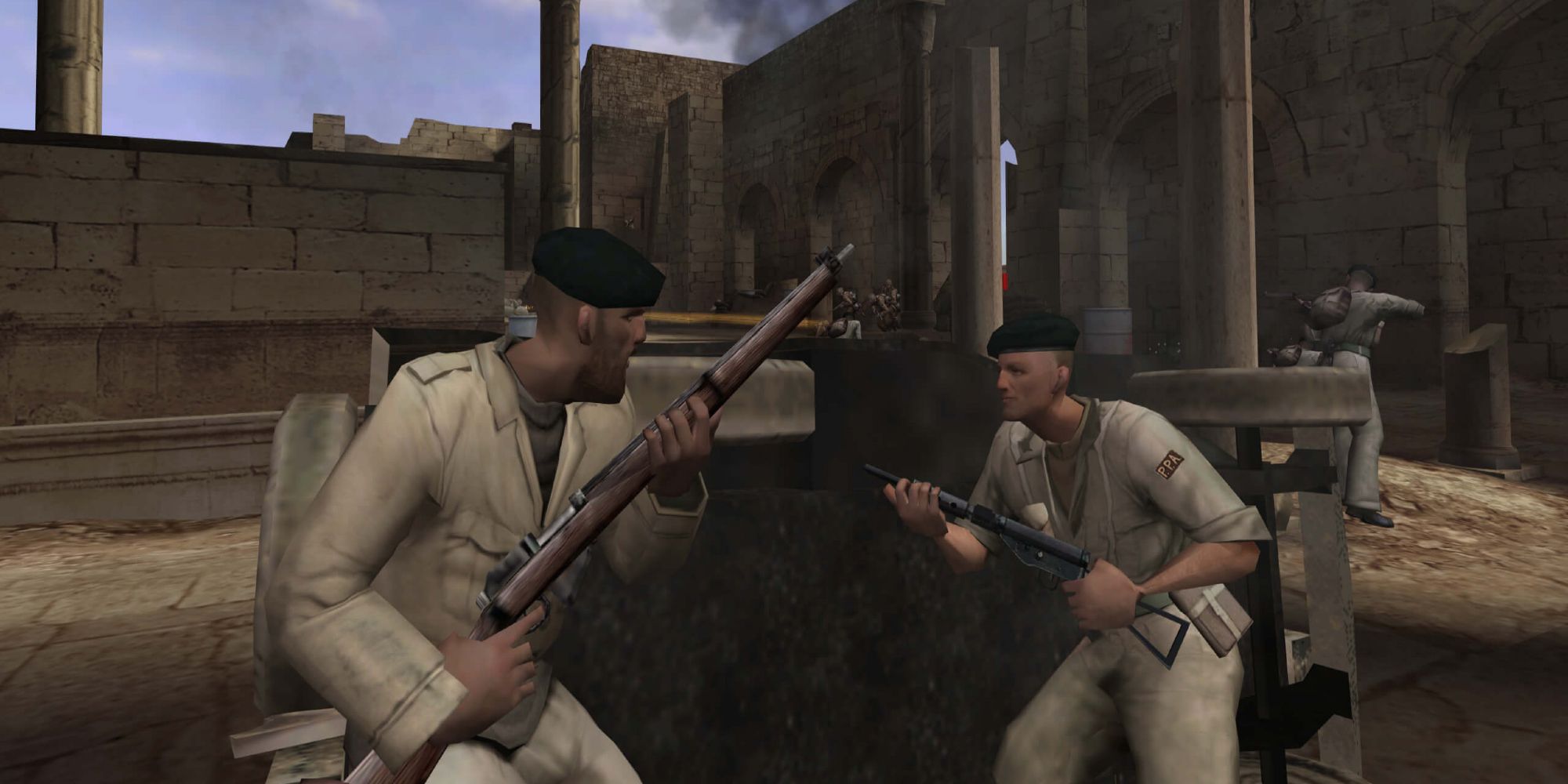
Call of Duty: Combined Forces was planned as a direct sequel to Finest Hour, the first console exclusive game in the series. Finest Hour is something of a side story to the original Call of Duty, which was released a year earlier. The two games look and feel very similar, but Finest Hour has a separate narrative for its campaign. According to Gamasutra (now known as Game Developer) in 2007, the development of Finest Hour under Spark Unlimited was particularly difficult and costly, and the pitch for Combined Forces was lacking in imagination. Activision was reportedly unimpressed with the management structure at Spark Unlimited, with the following being written of Finest Hour's development for the purposes of a lawsuit between the two companies in 2005:
[A] veritable bucket brigade of rescue workers was deployed to work with a small team of talented and hardworking Spark employees who had suffered under the incompetent regime previously set in place by Spark. In total, over 30 Activision employees and contracted personnel working under Activision’s leadership were directly involved in completing Finest Hour.
The pitch for Call of Duty: Combined Forces was apparently too costly for Activision, which felt it was more of an expansion pack rather than a brand-new game. Sparks Unlimited never worked under Activision again, and the company is defunct as of 2015.
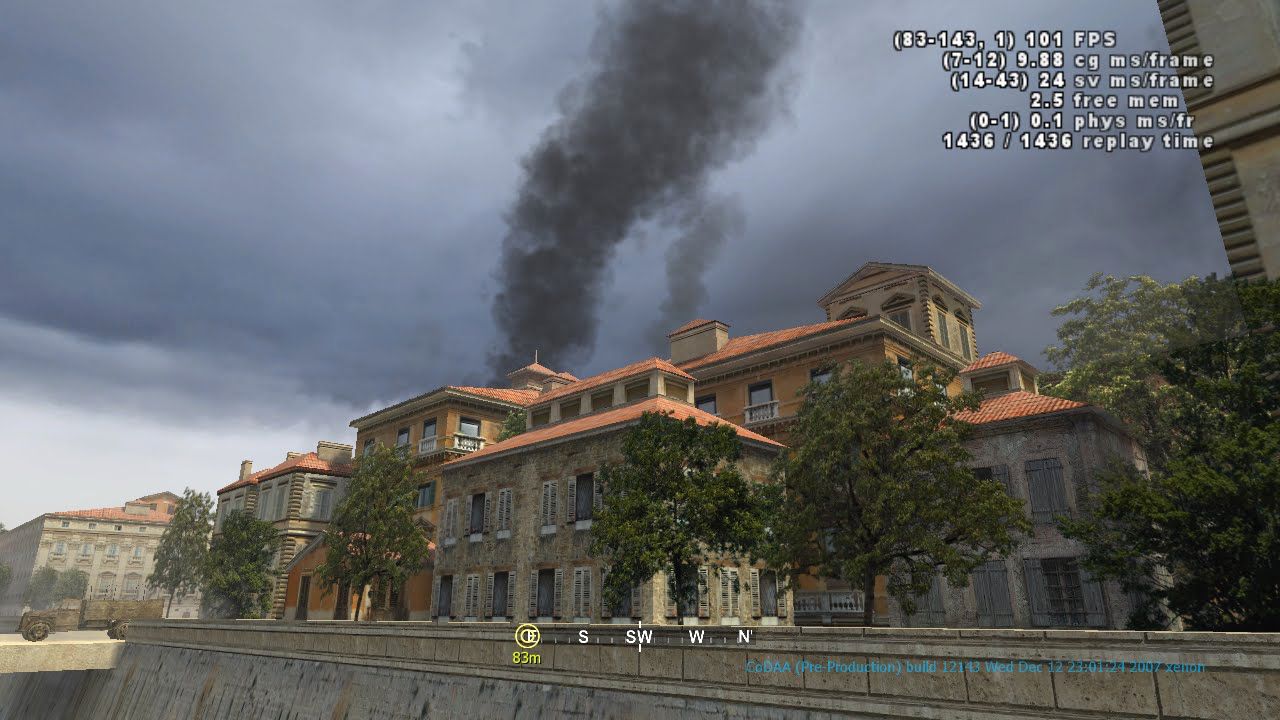
Call of Duty: Devil's Brigade was going to take place during World War II in Axis-controlled Italy. It was being created by Underground Development, but never got far in production before it was shuttered. A handful of screenshots can be seen on the Call of Duty Wiki, which seem to suggest that the developers experimented with both first and third-person perspectives, though the latter appears to be the decided upon play style, according to Polygon. The perspective alongside squad commands would have made Devil's Brigade unique in the series, but it was unceremoniously canceled roughly nine months into development.
The story was inspired by a real-life group of soldiers: a mixed bag of ruthless American troops and the finest in the Canadian infantry. The Devil's Brigade, officially known as the First Special Service Force, would go on to influence the development of both the United States and Canada's special ops groups post-war. Call of Duty: Devil's Brigade only ever received a vertical slice, in which a squad infiltrated German-occupied Rome to prevent the Nazis from blowing up key bridges. This was meant to demonstrate the game's planned squad-based gameplay, but developers told Polygon that the campaign would match Call of Duty's cinematic flair, including a first mission that depicted the Devil's Brigade's near-vertical climb at night, in the rain up Monte La Difensa northwest of Naples.
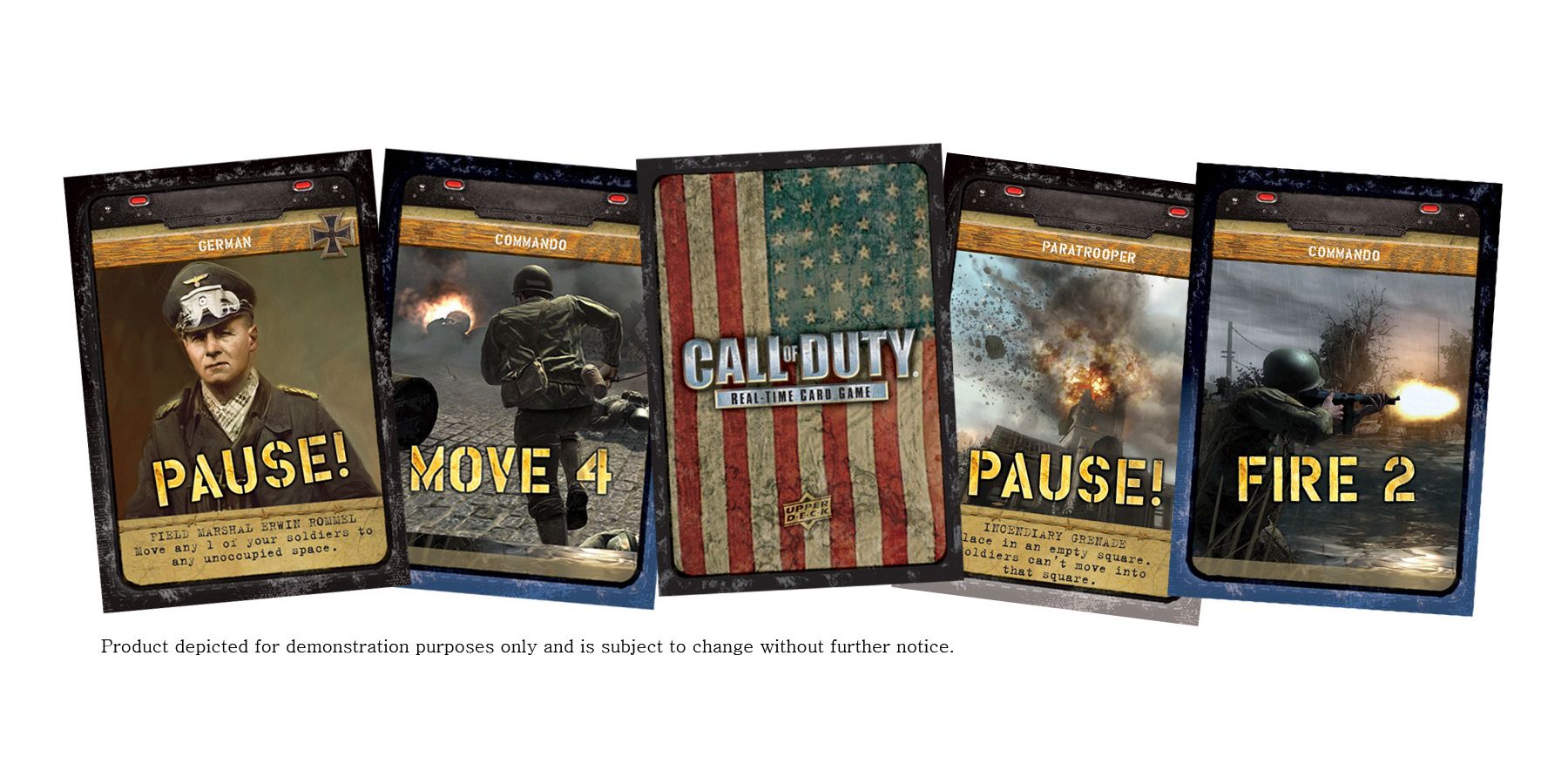
Call of Duty was expected to enter the card game space with Real-Time Card Game in 2008. The card game attempted to emulate the Call of Duty series' iconic gameplay by having no turn order, instead letting players use their speed as part of the strategy. According to BoardGameGeek, players would place their cards on a 5x5 grid, with victory contingent on achieving a pre-determined number of kills or successful completion of an objective. Recommended for two players, each deploys three soldiers on the grid and draws cards to dictate their movements and actions. The real-time gameplay sounds rather interesting, but Call of Duty: Real-Time Card Game was canceled before it ever entered production.
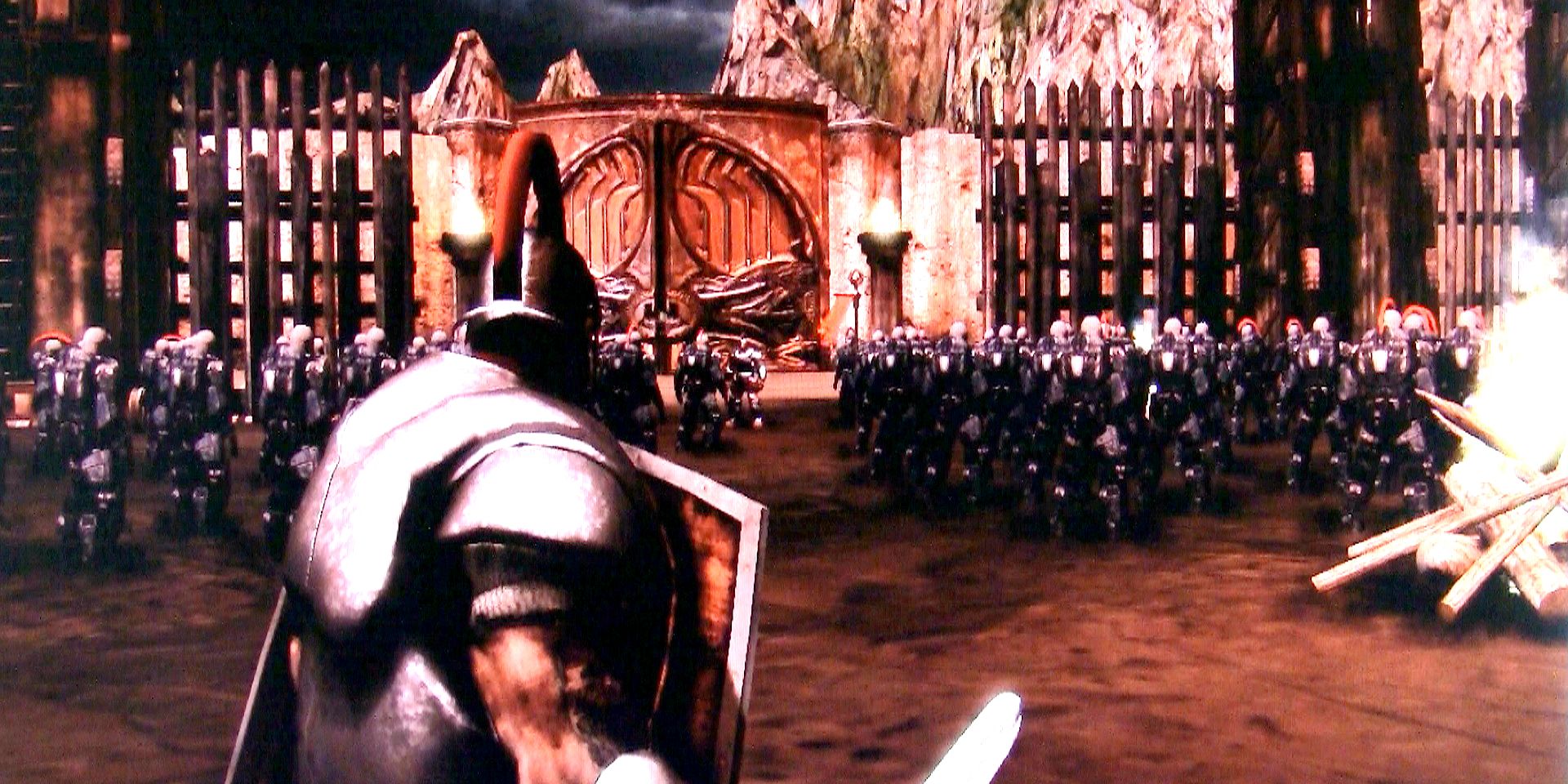
Roman Wars is perhaps the most outlandish pitch for a Call of Duty game. It would have centered on Julius Caesar's Tenth Legion, a famed military force fiercely loyal to the future Emperor. According to GamesRadar, Roman Wars was being developed by Vicarious Visions, and was planned as an attempt by Activision to broaden the scope of the Call of Duty IP. The game would have both first and third-person perspectives, with a wide array of combat mechanics. Shields, swords, bows, spears, and axes could all be used, players could fire catapults, ride horses and even elephants, and throw sand at enemies to blind them.
Call of Duty: Roman Wars had quite an impressive scope, and was primarily based on Caesar's Commentaries on the Gallic War. The game would have seen players take on a myriad of roles, from centurion to Caesar himself. Roman Wars apparently had quite a bit of interest behind it, but was deemed unsuitable for the Call of Duty brand and was canceled by Activision. IGN clarified that the higher-ups never seriously considered the prototype, but Vicarious Visions removed the Call of Duty branding and pitched Roman Wars to Ubisoft, where it was also rejected.
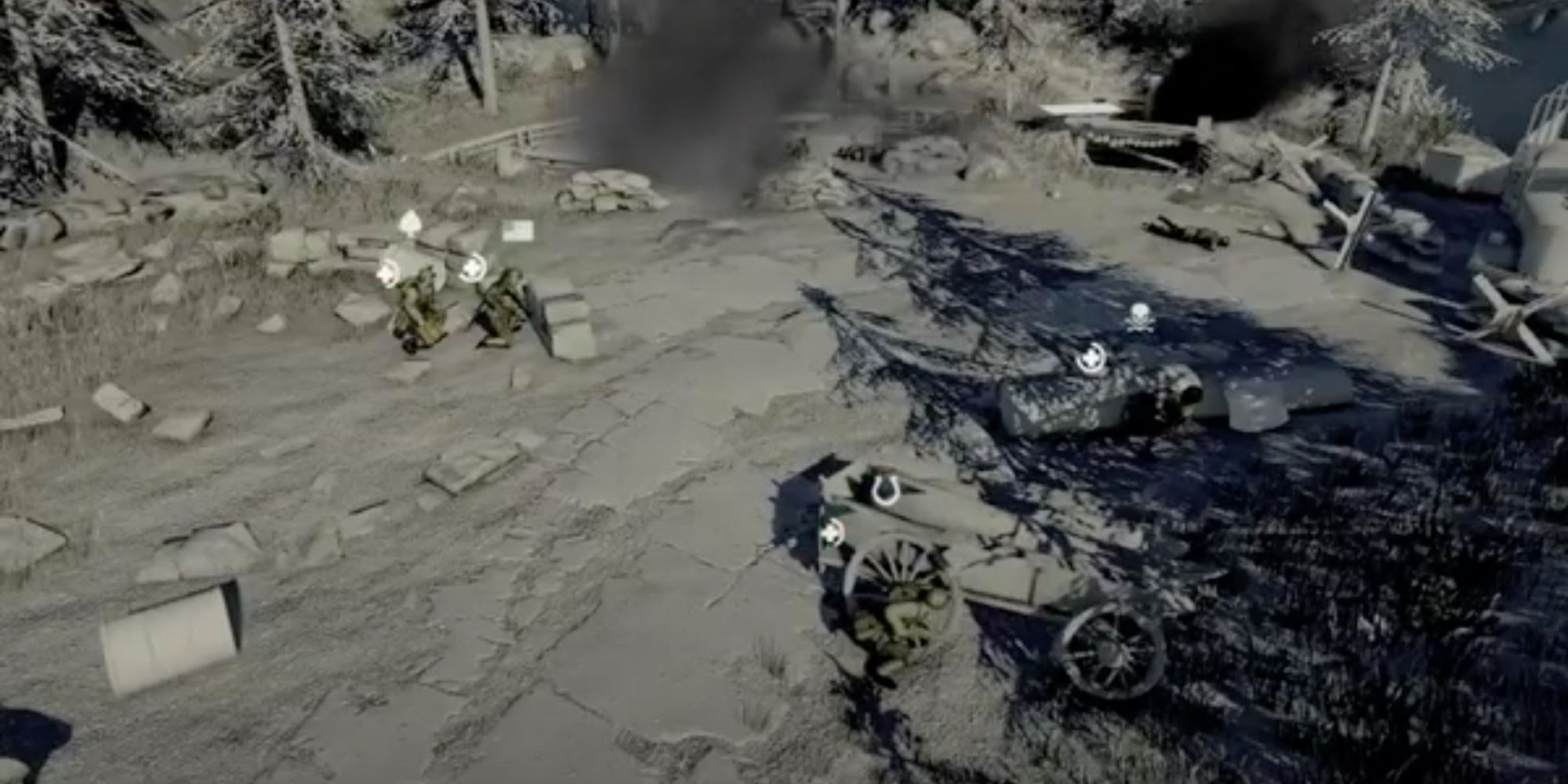
Vicarious Visions was also responsible for prototyping Call of Duty: Tactics, another canceled effort. Tactics appears to put players in control of an entire squad from an elevated viewpoint. The only information on Call of Duty: Tactics comes from a very short gameplay clip, which, according to GameInformer, was pulled from a Vicarious Visions animator's portfolio. The gameplay looks reminiscent of the PlayStation Portable game SOCOM U.S. Navy Seals: Tactical Strike, or the skirmishes that erupt in the gameplay of Company of Heroes, only on a smaller scale. Call of Duty: Tactics apparently didn't make it far into development, though the exact reason for its cancellation is unknown.
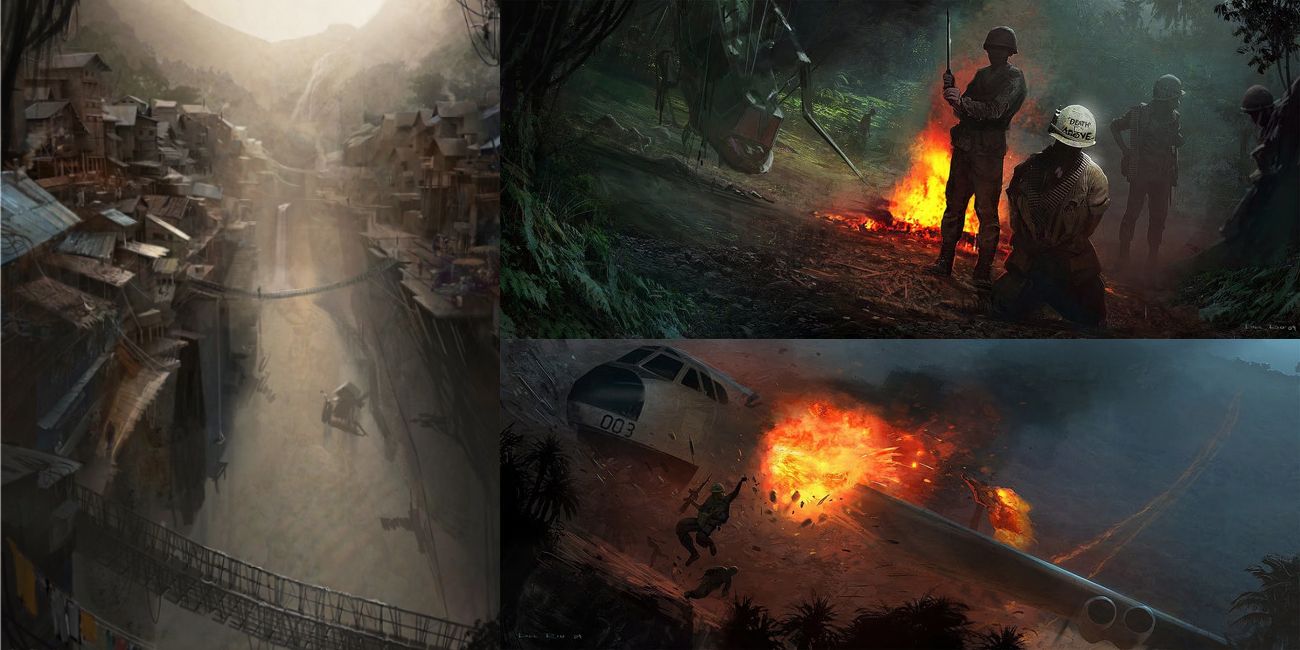
Though Black Ops touches on the Vietnam War, Call of Duty: Vietnam would have centrally revolved around the conflict that also spilled over into neighboring Cambodia and Laos. Vietnam was intended to be another attempt at a third-person Call of Duty, according to IGN, and would have approached the action-adventure genre. The project was being created by Sledgehammer Games, and was only in development for about six or eight months prior to the release of Modern Warfare 3. Activision approached Sledgehammer with the opportunity to assist on MW3, and Vietnam was put on hold. Following that, Sledgehammer went on to develop Advanced Warfare, and with Vietnam effectively canceled, Call of Duty remains without a third-person entry.
Sources: BoardGameGeek, Call of Duty Wiki, Gamasutra, GameInformer, GamesRadar, IGN (Roman Wars, Vietnam), Polygon
from ScreenRant - Feed https://ift.tt/3w5JnYm
via IFTTT
No comments:
Post a Comment